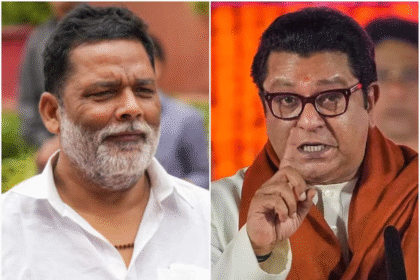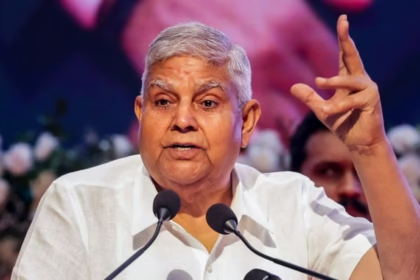Why the World Needs 5X More Young, Angry Women Like Greta Thunberg: Her Bold Response to Trump After Returning to Paris
Greta Thunberg passionately responds to Donald Trump after her return to Paris, calling for more young, angry women to lead the fight against climate change
In a powerful and unapologetic statement, climate activist Greta Thunberg has once again asserted her position as one of the most influential voices in the global climate movement. After returning to Paris, the young Swedish activist responded sharply to former U.S. President Donald Trump’s repeated criticisms, declaring that “the world needs more young angry women” like herself to confront the climate crisis and demand urgent action.
This interaction is not just a clash of personalities but symbolizes a broader generational and ideological conflict over the future of our planet. Greta Thunberg’s words resonate far beyond the immediate spat with Trump — they highlight the growing role of youth, especially young women, in driving environmental activism worldwide.

Greta Thunberg, who first gained international attention as a teenager sitting outside the Swedish parliament with a sign demanding climate action, has since become a global symbol of climate urgency. After years of relentless campaigning, including sailing across the Atlantic to attend major climate summits and addressing world leaders at the United Nations, Greta’s activism has transcended mere protest—it has sparked a global youth movement demanding accountability and sustainability.
Her recent return to Paris, a city symbolic for climate diplomacy after the 2015 Paris Agreement, was marked by renewed energy and determination. It was here that she faced the lingering echo of Trump’s skepticism about climate change during his presidency, particularly his withdrawal from the Paris Agreement and his dismissive remarks toward climate activists.
Donald Trump’s approach to climate change during his time in office was characterized by denial and rollback of environmental protections. He frequently mocked Greta Thunberg on social media and at public events, calling her a “very happy young girl looking forward to a bright and wonderful future” in a clearly sarcastic tone after she spoke passionately about the climate crisis.
Despite the personal attacks, Greta remained undeterred. In fact, she has often used Trump’s criticisms as fuel for her activism. The recent exchange after her return to Paris is another example of her resilience and refusal to back down in the face of powerful opposition.
When asked about Trump’s remarks, Greta responded, “The world needs more young angry women like me. Anger is justified because of the state of the planet, and that anger is what drives change.” This statement encapsulates a powerful message about the role of emotion, especially anger, in activism.
Anger is often seen negatively in many societies, especially when expressed by young women. However, Greta’s assertion challenges this stereotype by reframing anger as a necessary and constructive emotion in the fight against climate change.
Climate change is an existential threat that demands urgent and radical changes to the way societies operate, yet governments and corporations have been slow to respond. This frustration naturally leads to anger among those who understand the stakes—particularly young people who will inherit the consequences of today’s inaction.
Greta’s anger represents the collective frustration of millions of young people worldwide who see their futures being compromised. It’s a call to channel that anger into activism, policy pressure, and societal transformation. As she puts it, “Anger is the fire that fuels our movement. It’s the spark that can ignite change.”
The phrase “young angry women” highlights a significant shift in environmental activism: the rise of young female leaders. Greta Thunberg is just one of many young women globally who have taken the helm of climate activism. From Vanessa Nakate in Uganda to Autumn Peltier in Canada, young women are increasingly recognized as powerful advocates for environmental justice.
This rise is important because women, especially in vulnerable regions, are disproportionately affected by climate change. Their leadership brings essential perspectives on sustainability, equity, and resilience. Moreover, young women’s visibility in the climate movement challenges traditional power structures and amplifies calls for inclusive, just solutions.
Greta’s success has inspired a generation of young women to find their voices and take action. Her statement is both a personal declaration and an invitation for more young women to harness their anger and transform it into leadership.
While Greta Thunberg’s activism often dominates headlines, it’s important to understand that she represents a much larger global youth movement. Around the world, young people are organizing strikes, lobbying politicians, and proposing innovative solutions to combat climate change.
The Fridays for Future movement, initiated by Greta, has mobilized millions of young people across continents to demand climate justice. This movement rejects complacency and insists on immediate, science-based action.
Young activists have also highlighted issues of climate justice, emphasizing that climate change intersects with social inequality, indigenous rights, and economic disparities. They demand systemic change rather than superficial fixes.
Donald Trump’s presidency left a controversial legacy in climate policy. His administration rolled back numerous environmental regulations, promoted fossil fuel development, and withdrew the U.S. from the Paris Agreement—actions widely condemned by scientists and activists.
However, the Biden administration has since recommitted the U.S. to global climate leadership, rejoining the Paris Agreement and setting ambitious targets for emissions reduction. This shift reflects broader public awareness and political will to address climate change.
Greta’s confrontation with Trump is a microcosm of this broader political battle over climate policy. Her call for more “young angry women” serves as a reminder that activism, especially youth-led activism, is crucial to keeping pressure on governments and corporations to fulfill their climate commitments.
Greta Thunberg’s defiant statement after returning to Paris is more than a retort to a political opponent; it’s a clarion call for a new wave of activism driven by passion, urgency, and a refusal to accept the status quo. By embracing anger as a catalyst for change and encouraging more young women to lead the fight, Greta is helping reshape the narrative around climate action.
The world stands at a critical juncture. Rising global temperatures, extreme weather events, and biodiversity loss demand collective and immediate action. Young activists like Greta Thunberg remind us that change often begins with dissatisfaction and anger—but it must be channeled constructively.
In the face of political resistance and entrenched interests, it is the voices of young people, especially young women, that are rising strongest, demanding a livable future. Greta’s message is clear: the world needs their anger, their passion, and their leadership now more than ever.








